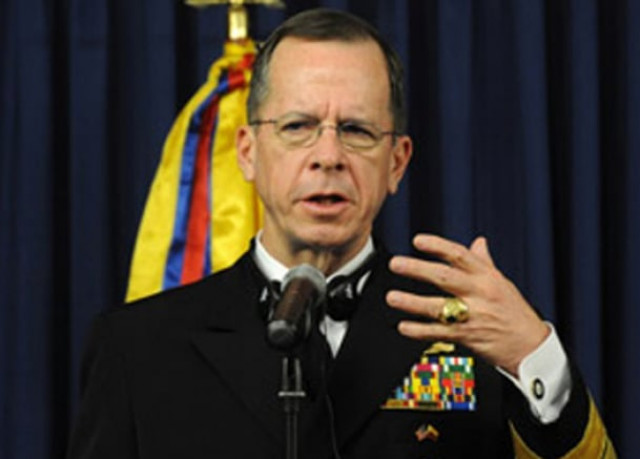Mullen to meet Kayani, Munter to align goals
Admiral Mike Mullen says he wants to know Pakistan military's overview of the regional situation.

“We will update each other (on) where we stand on certain issues,” Mullen said, adding that he wanted to know the Pakistan’s military’s overview on the regional situation.
A significant challenge is defining mutual interests and objectives, the chairman said on the plane trip here. “The best way I know how to do that is an individual meeting,” he said.
Mullen said he would not brief Kayani on the White House’s Afghanistan-Pakistan review. The stolen classified materials published on the WikiLeaks website might complicate the situation, Mullen acknowledged, but he said he “is comfortable (that) his relationship with military leaders in Pakistan can handle any awkward issues”.
Dealing with the Taliban sanctuaries “is (also) a priority”, Mullen said, noting that Kayani met with the commander of Nato’s International Security Assistance Force Army Gen David H Petraeus on the same issue.
Mullen said he believed in reconciliation in Pakistan and Afghanistan with elements who “see error of their ways and wish to affiliate with the government … that should be encouraged, but I also fundamentally believe there are irreconcilables”.
The chairman stressed that US troops were not involved in combat operations with the Pakistan military.
Although the United States is impatient to see the Taliban sanctuaries eliminated, but US leaders must exercise “strategic patience” with Pakistanis to build the trust necessary to forge a good alliance.
Published in The Express Tribune, December 15th, 2010.



















COMMENTS
Comments are moderated and generally will be posted if they are on-topic and not abusive.
For more information, please see our Comments FAQ